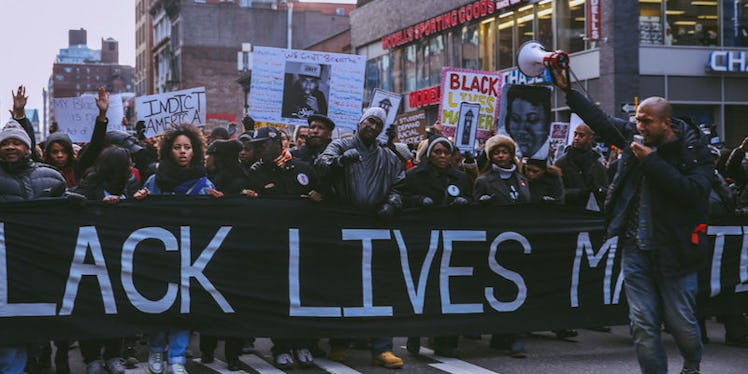
Why America Needs To Value Black Lives Beyond The Scope Of Sports
On April 30, the Tampa Bay Buccaneers drafted Jameis Winston of Florida State University as the number one pick in the National Football League (NFL) draft.
Over the next few hours, 31 more young men would have their dreams fulfilled as they learned which team they would play for to kick off their careers.
Sports experts and fans alike will spend at least the next few weeks assessing and critiquing those picks, trying to determine before they even take the field who will be a bust and who will be a perennial Pro Bowler.
Of those 32 men, some as young as 20 years old, 31 would be considered people of color.
On that same day — and the days preceding it — Baltimore was protesting. While the unrest started with the death of Freddie Gray while in police custody, the underlying reasons are far broader.
Blacks in America are tired of living as second-class citizens.
They are tired of having to fight twice as hard for the same opportunities as their white neighbors.
They are tired of fearing that the very people who are supposed to protect them will kill them if they are wearing a hoodie and make the wrong move.
They are tired of having to fight the fact that the media will look at a protest for equal rights and focus only on the violence and label the entire movement a riot.
When the protests do die down and the media can go back to focusing on which multimillionaire white person will be our next president, will anything have changed?
A common slogan of the equal rights movements that has emerged from the recent string of unarmed black deaths at the hands of police is Black Lives Matter.
The coinciding existence of the NFL draft and the protests in Baltimore and the different way they are depicted in and covered by the media offers a perfect example of how skewed our value placement is.
Jameis Winston will likely sign a multimillion-dollar contract to play starting quarterback for Tampa Bay.
Pundits will discuss his strengths and weaknesses endlessly on "SportsCenter" and talk shows until he takes the field for game one in September.
The same is true, to a lesser extent, of the the rest of the players selected in the first round of the draft.
The sports media will report when and where Winston buys his first house, chime in on the attractiveness of his girlfriend and conduct endless interviews about what it’s like to have achieved his dream at such a young age.
This type of media investment in the life of a black man not named Obama is unheard of in any other context.
Protesters in Baltimore would love to conduct interviews about what their lives are like now; how black people are constantly under surveillance and suspicion, even in their own neighborhoods; how the obstacles in the way of achieving their dreams seem almost insurmountable; and how difficult it is to get their messages across to people who believe civil rights and equality were achieved back in the 60s with Martin Luther King, Jr.
Of course, on the off chance one does get an interview, most of the questions would be about rioting and how a person could participate in such senseless violence, forgetting entirely the causes of said unrest.
For a long time, sports have been regarded as a way for black and other underprivileged youths to get out of their undesirable circumstances.
A child may attend an underfunded school in a gang-controlled neighborhood with parents who have to work three or four jobs to put food on the table, but if he tries really hard, practices and believes, one day he could be a professional football player.
He could rise above the discrimination and inequality he faced in his youth and become a multimillionaire athlete.
The truth is, the number of children who face poverty, live in slums and attend terrible schools far outstrips the number of players on every sports team in the country.
Poverty shouldn’t be seen as something to rise above because that implies it is a natural and chosen way of being.
Poverty is something to be fought against; it is a condition of inequality that should be eradicated.
Those young boys and girls who don’t even have sports as a possible escape should be able to dream of a future that doesn’t involve a 10-year career and brain damage by age 40.
It’s time for a complacent white majority to wake up, take their eyes off the NFL draft and see that inequality still exists in America.
The people of Baltimore aren’t protesting and rioting because they love violence or wanted new TVs; they are protesting because they are trying to be heard by a country that seems content to not listen.
They are trying to tell you all black lives matter, not just the ones that will be starting for your favorite football team next season.